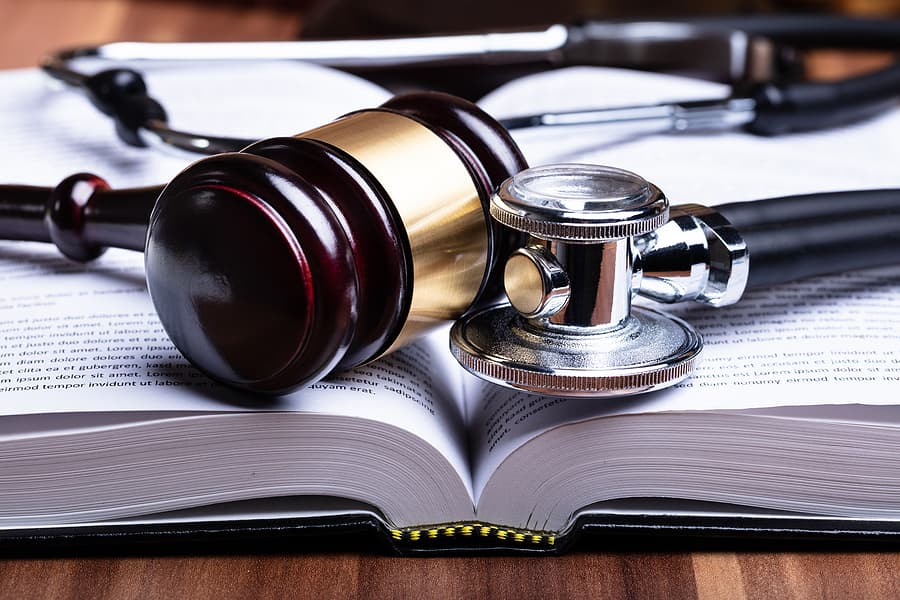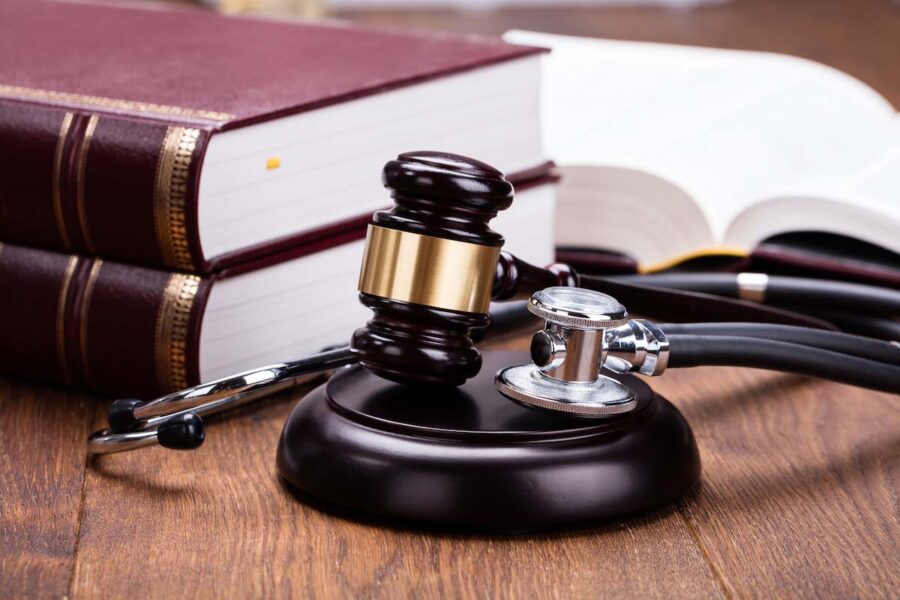Medical negligence is a serious issue that can have devastating consequences for patients and their families. While many individuals trust healthcare professionals implicitly, it’s crucial to remain vigilant and informed about potential warning signs of negligence. Medical negligence lawyers in Brisbane often encounter cases where these signs are overlooked until it’s too late. Here, we delve into seven key indicators that may suggest medical negligence has occurred.
1. Misdiagnosis or Delayed Diagnosis
One of the most prevalent forms of medical negligence is misdiagnosis or a delayed diagnosis. According to a study by the Robert Graham Center, diagnostic errors account for 34% of medical malpractice claims. This alarming statistic highlights the importance of accurate and timely diagnoses in ensuring patient safety — a concern that medical negligence lawyers brisbane frequently address when helping victims pursue justice and compensation.
Patients who experience symptoms that are not correctly identified may suffer prolonged illness or even life-threatening conditions. If you notice that your healthcare provider dismisses your symptoms or fails to conduct necessary tests, it may be time to seek a second opinion. Ignoring these signs can lead to serious health complications.
Understanding the Impact of Diagnostic Errors
Diagnostic errors can have far-reaching consequences. For instance, a misdiagnosed cancer may lead to a delay in treatment, significantly reducing the chances of recovery. The U.S. Department of Health and Human Services reported that approximately 1 in 18 patients visiting emergency rooms are misdiagnosed, with adverse events occurring in 1 in 50 cases. Such statistics underscore the critical nature of accurate diagnosis.
Patients should be proactive in their healthcare. If you feel that your concerns are not being taken seriously, don’t hesitate to advocate for yourself. Request further testing or a referral to a specialist if necessary.
2. Surgical Errors
Surgical errors are among the most alarming forms of medical negligence. Research indicates that these mistakes can include wrong-site surgeries, which can have catastrophic consequences. A study by Johns Hopkins found that surgical errors rank as the third leading cause of death in the United States.
Patients undergoing surgery should be aware of the procedures being performed and the potential risks involved. If you notice any discrepancies in your surgical plan or if the surgical team seems unprepared, it’s essential to voice your concerns. Such vigilance can prevent tragic outcomes.
Common Types of Surgical Errors
- Wrong-site surgery: Operating on the wrong part of the body is a grave error that can lead to irreversible damage.
- Retained surgical instruments: Leaving tools inside a patient can cause severe complications and often requires additional surgeries to rectify.
- Anesthesia errors: Mistakes in administering anaesthesia can lead to serious health risks, including death.
Being informed about the surgical process and asking questions can help mitigate these risks. Always ensure that your surgical team confirms the procedure and the site before commencing.
3. Inadequate Follow-Up Care
Follow-up care is a critical component of patient recovery. If a healthcare provider fails to schedule necessary follow-up appointments or neglects to monitor a patient’s progress, it may indicate negligence. Patients should receive clear instructions regarding post-treatment care and any signs of complications to watch for.
For instance, after surgery, patients should be monitored for signs of infection or other complications. If your healthcare provider does not provide adequate follow-up care, it may lead to worsening conditions that could have been prevented.
Recognising the Importance of Follow-Up
Follow-up appointments are essential for assessing recovery and adjusting treatment plans as necessary. If you feel that your concerns are not being addressed during follow-up visits, it’s crucial to speak up. Neglecting to do so could result in serious health issues that could have been easily managed with proper care.
4. Medication Errors
Medication errors are another significant area of concern in medical negligence. The incidence rate of avoidable adverse drug events in hospitals is estimated at 5.3 per 1,000 medication doses. Such errors can occur due to incorrect dosages, wrong medications, or failure to consider patient allergies.
Patients should always be informed about the medications they are prescribed, including potential side effects and interactions with other drugs. If you notice any discrepancies in your medication or experience unexpected side effects, it’s vital to report these issues immediately.
How to Prevent Medication Errors
- Keep a medication list: Maintain an updated list of all medications you are taking, including dosages and frequencies.
- Ask questions: Don’t hesitate to ask your healthcare provider about your prescriptions and any potential side effects.
- Check labels: Always verify that the medication you receive matches what was prescribed.

By being proactive and informed, you can significantly reduce the risk of medication errors affecting your health.
5. Poor Communication
Effective communication between healthcare providers and patients is paramount. Poor communication can lead to misunderstandings, misdiagnoses, and inadequate treatment plans. If you feel that your healthcare provider is not listening to your concerns or providing clear explanations, it may be a sign of negligence.
Patients should feel empowered to ask questions and seek clarification about their treatment. If you find that your healthcare provider is dismissive or unresponsive, consider seeking a second opinion. Clear communication is essential for ensuring that you receive the best possible care.
Building a Strong Patient-Provider Relationship
A strong relationship with your healthcare provider can significantly impact your treatment outcomes. Establishing open lines of communication fosters trust and ensures that your concerns are addressed. If you feel uncomfortable discussing your health with your provider, it may be time to explore other options.
6. Unexplained Changes in Health Status
Sudden or unexplained changes in your health status can be a red flag for medical negligence. If you experience new symptoms or a deterioration in your condition without a clear explanation from your healthcare provider, it’s essential to investigate further. Such changes could indicate that your treatment plan is not effective or that a misdiagnosis has occurred.
Patients should be vigilant about their health and report any concerning changes to their healthcare provider. If your provider fails to address these changes adequately, it may warrant further scrutiny.
Taking Charge of Your Health
Being proactive about your health can make a significant difference in your treatment outcomes. Keep a journal of your symptoms and any changes you notice, and don’t hesitate to discuss these with your healthcare provider. If you feel that your concerns are not being taken seriously, seek a second opinion.
7. Lack of Informed Consent
Informed consent is a fundamental principle in healthcare. Patients have the right to understand the risks and benefits of any treatment or procedure before agreeing to it. If you feel that you were not adequately informed about your treatment options or the potential risks involved, it may indicate negligence.
Healthcare providers are obligated to ensure that patients understand what they are consenting to. If you feel rushed or pressured into making a decision without sufficient information, it’s crucial to voice your concerns. Informed consent is not just a formality; it’s a vital aspect of patient autonomy and safety.

Ensuring Your Rights Are Respected
Patients should never feel uncomfortable asking questions about their treatment. If you feel that your rights are not being respected, consider seeking legal advice. Medical negligence lawyers in Brisbane can provide guidance on how to proceed if you believe you have been a victim of negligence.
Understanding these warning signs of medical negligence can empower patients to take control of their healthcare. By being vigilant and proactive, you can help ensure that you receive the quality of care you deserve. If you suspect that you or a loved one has experienced medical negligence, don’t hesitate to seek legal counsel. Your health and well-being are paramount.
See Also: How personal injury lawyers Brisbane calculate your compensation payout


